children
Our partner organisations deliver onecourse directly into the hands of children around the world.
BEFIT (Malawi)
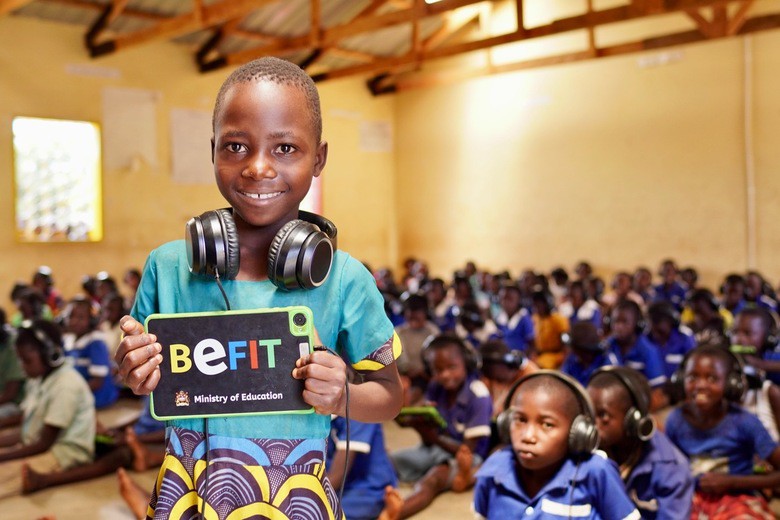
- Government of Malawi
- Imagine Worldwide
The Government of Malawi has begun its nationwide rollout of onetab to every Standard 1-4 learner in the country. The Building Education Foundations through Innovation & Technology (BEFIT) programme, led by the Ministry of Education and supported by a growing consortium of implementation partners, funders, and researchers, will reach 3.8 million children annually by 2029. onebillion has now appointed Imagine Worldwide as its exclusive software distributor in Malawi to coordinate the scale-up of the onecourse software.
Kenya
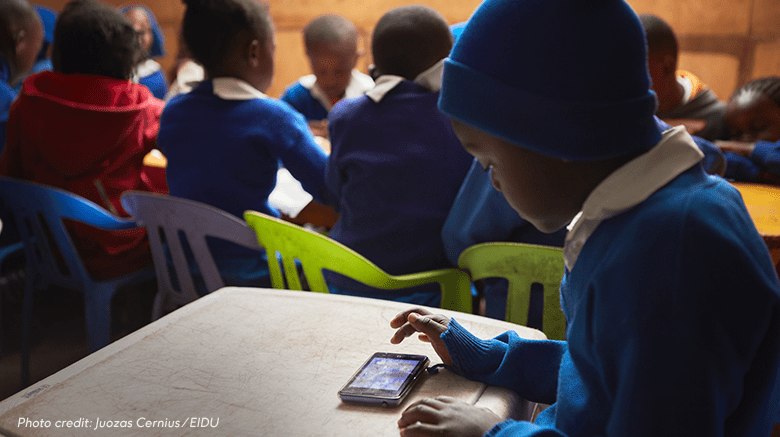
- EIDU
Over 230,000 children across several counties in Kenya are actively using onecourse content via the EIDU open platform. EIDU delivers onecourse through low-cost, school-based interventions, and monitors impact for continuous optimisation. onecourse content will reach over 300,000 children in Kenya via EIDU in 2023. EIDU has support from all 47 Kenyan counties and is working on a nationwide roll-out with the Kenyan government over the next few years.
Unlocking Talent
- VSO Malawi
- UNICEF
- Comic Relief
- DFID
- Royal Norwegian Embassy
- KfW
- MoEST Malawi
- Airtel
- Cisco
One successful trial project in 2013 has led to a nationwide educational initiative in Malawi, called Unlocking Talent. The initiative is now institutionalised in the Ministry of Education, Science and Technology’s ‘Digital Education Technology Agenda’, with the goal to embed it in all 5,300 primary schools, covering roughly 4.4 million children across the country.
South Africa
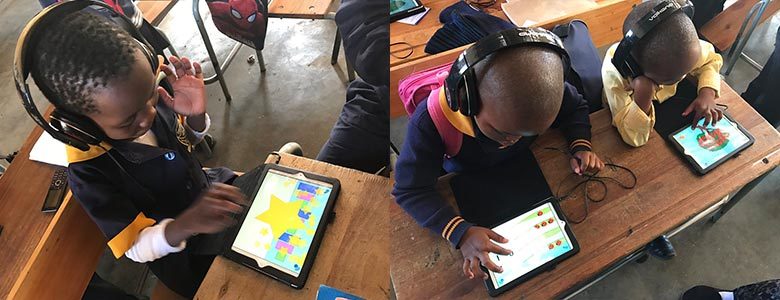
- iSchool Africa
iSchool Africa, together with the Department for Rural Development and corporate partners, have implemented the Unlocking Talent approach to more than 130 schools across South Africa. Each of the participating schools has adapted the approach to suit their specific local needs. For example, while some schools use our numeracy material to help smooth the transition between Afrikaans and English, others give children access to the software to allow them to catch up on the basic maths skills needed to progress.
Sierra Leone
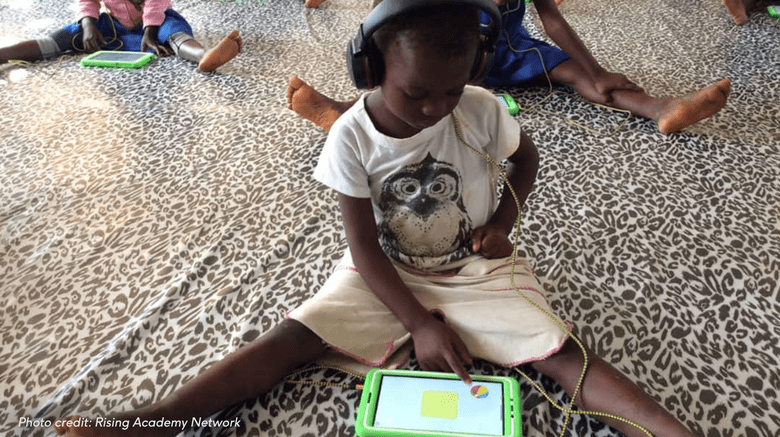
- Imagine Worldwide
In Sierra Leone, partner Imagine Worldwide has been working with Rising Academies to implement onetab to 16,000 children across Grade 1-6. The initial pilot is designed to test delivery models to inform future national scaling. Children are using the onecourse software in International English.
Ghana
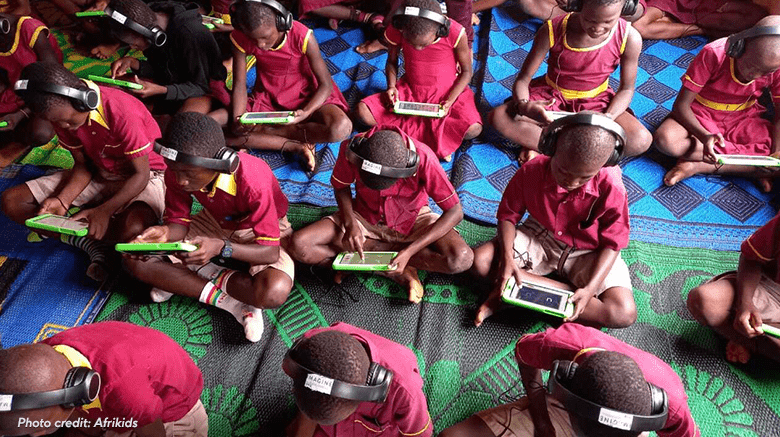
- Imagine Worldwide
Beginning with a pilot of 4 schools, Imagine Worldwide and partner Afrikids are now working in 15 schools in Ghana with onetabs for children in grades 1-4.
Liberia
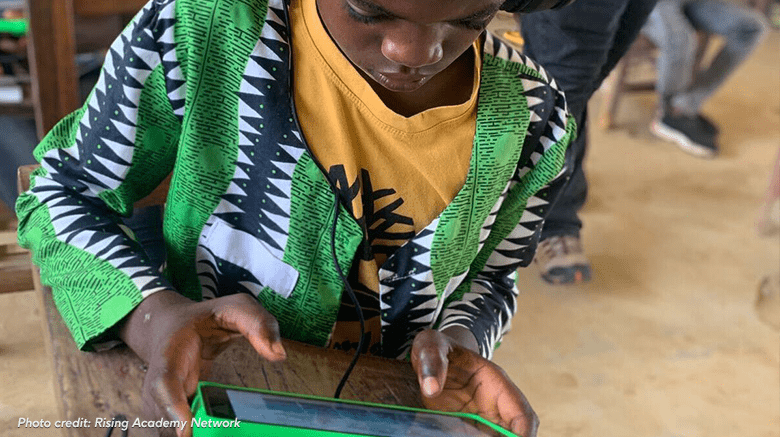
- Imagine Worldwide
Since September 2022, Imagine Worldwide have been working with Rising Academy Network to implement onetabs in government primary schools in Liberia. Currently working across 24 sites, Imagine plan to scale to 95 schools and 20,000 children by September 2024.
Burkina Faso
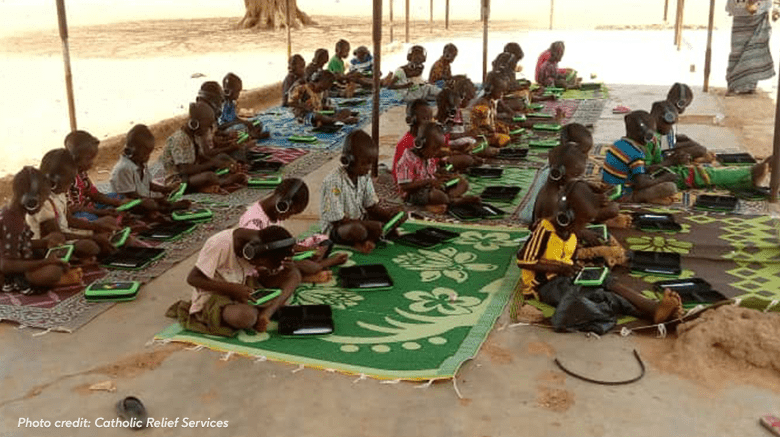
- Imagine Worldwide
In Burkina Faso, onetab is used in a hybrid model (both in schools and communities) to enable children to continue learning despite disruptions to schooling. Imagine Worldwide, working with Catholic Relief Services, plan to scale to 7,500 grades 1-3 children across the next three years.
Malawi
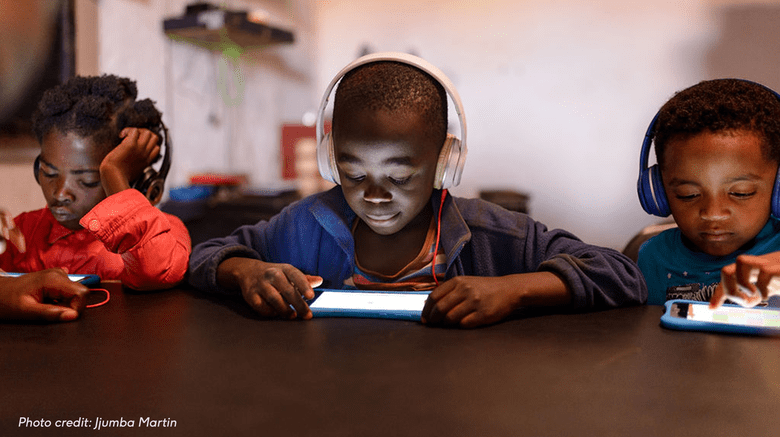
- Imagine Worldwide
Imagine Worldwide, a non-profit that provides affordable and effective child-directed, tech-enabled learning, has been working in two government-run schools in Lilongwe to deliver the onecourse curriculum in 40-minute daily sessions. Since 2019, Imagine has also been working in Dzaleka refugee camp with partners Integrity Church School and takenoLAB to explore implementation models that deliver learning gains in informal and out-of-school contexts. Imagine also served 700 low-income households with primary age children affected by school closures due to COVID-19 in Lilongwe, researching the key drivers of and barriers to the use of tablets in a home setting.
United Kingdom
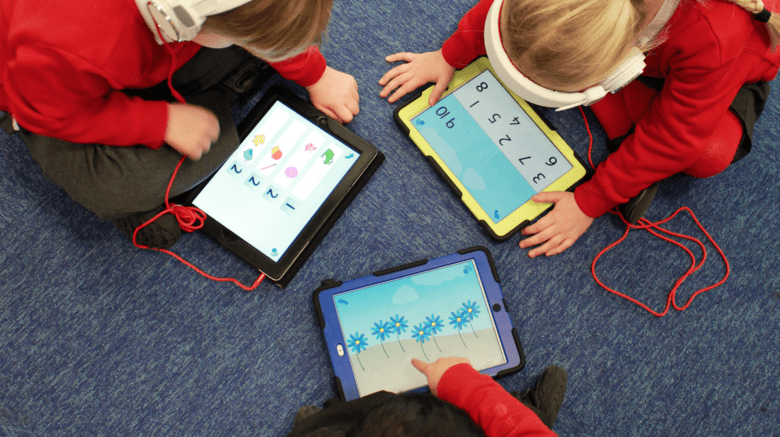
- Education Endowment Foundation
- University of Oxford
- University of Nottingham
A study funded by the Education Endowment Foundation found that Year 1 children using the maths apps across schools in England made – on average – an increase of three months’ progress compared to control groups. The children used our numeracy software for 30 minutes per day, 4 days a week, for 12 weeks. The children were assisted by teaching assistants trained by the University of Nottingham. Independent researchers from the University of Oxford monitored and evaluated learning outcomes.
Senegal
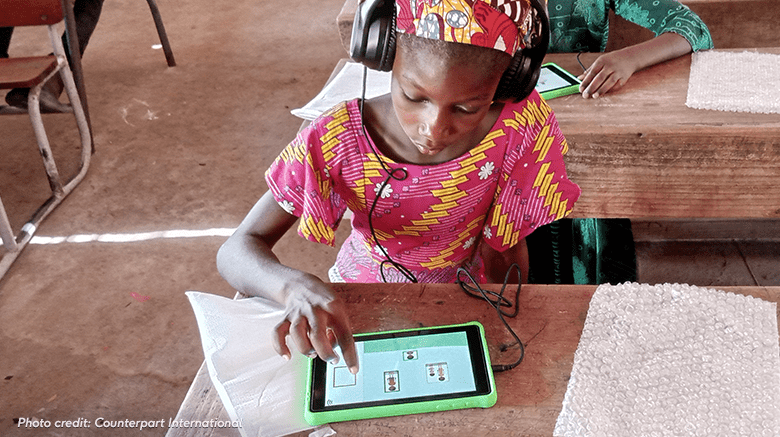
- Imagine Worldwide
Imagine Worldwide, in partnership with Counterpart International, are implementing onetab in 75 schools over the next 4 years, as part of the McGovern-Dole Food for Education Program.
Jamaica
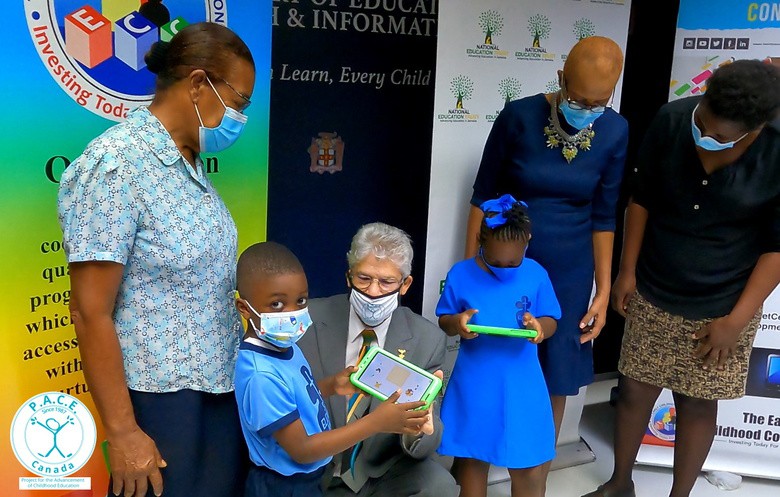
- PACE Canada
In 2021 Project for the Advancement of Childhood Education (PACE) Canada donated 1,000 onetabs to the Minister of Education in Jamaica. An Additional 1,500 onetabs were donated in 2025. The onetabs have been distributed to 500 kindergarten schools across the island. The aim is to bridge the digital divide and empower children with the tools necessary for their educational journey.
Uganda
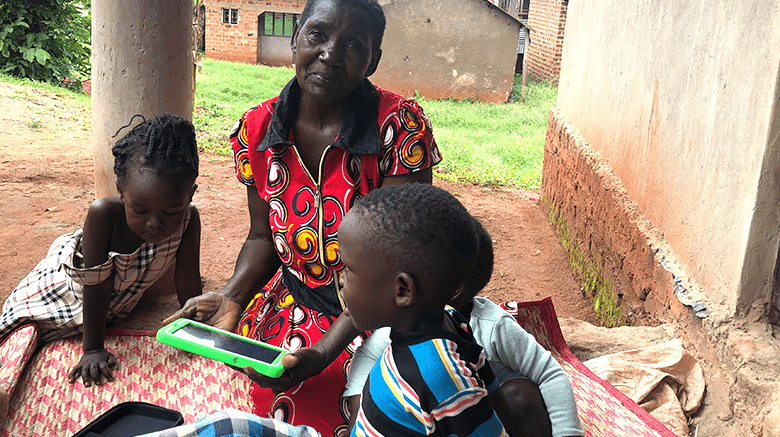
- Hello World
onetabs are being used by families in Kampala to boost numeracy and literacy outcomes.
Our partner Hello World works with communities in Uganda, Nigeria and Nepal to build solar-powered internet Hubs. In their ‘Hub Heroes’ project, 100 onetabs have been delivered to 100 families for younger children to learn to read and do maths, in English. Mothers act as onetab custodians – ensuring their children share the tablet each day and charging it at the community Hub, where they can catch up with other parents on their children’s progress.
Kenya
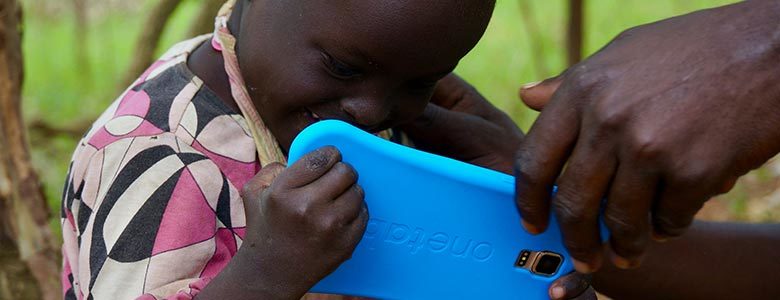
- Vibrant Villages
The Community-Based Learning Project is an independent project being undertaken by the onebillion team across two rural villages in Kenya. The project sees children between the ages of 5 and 11 given access to onecourse on onebillion mobile devices. The mothers act as custodians of these devices, allowing the children to access the software within the home. Huge amounts of data is being remotely gathered and due to be analysed by onebillion, to evaluate the effectiveness of delivering onecourse through the community.
India
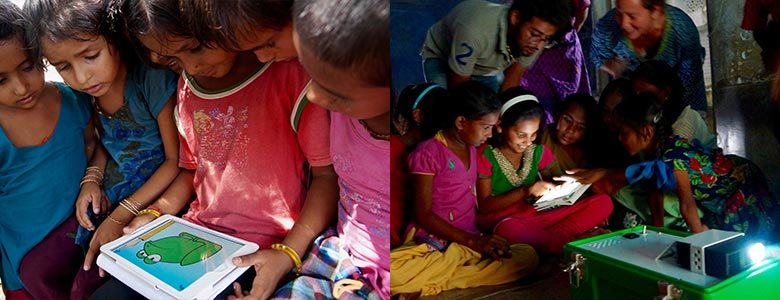
- Barefoot College
Two young engineers, Kirubhagar and Harsh Tiwari, partnered with Barefoot College to manufacture their own solar-powered projector based on our prototype design. The projector is used to display our learning material from iPads, in the local night school where there is no electricity. Both attendance and children’s learning outcomes has increased since the projector’s implementation.
Uganda
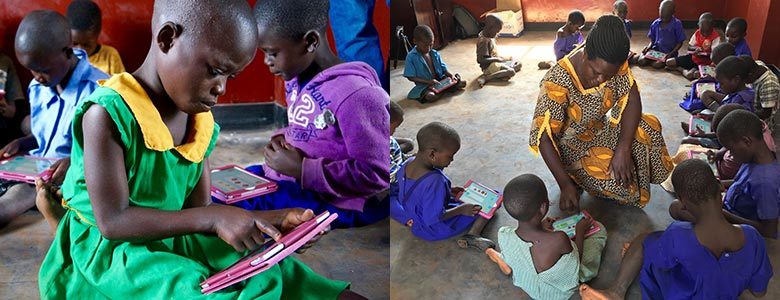
- Haileybury Youth Trust
UK charity Haileybury Youth Trust constructed a oneclass learning centre for Nabirama Primary School in the Jinja district of Uganda. Children at Nabirama now learn using our numeracy material in a safe and clean environment. The oneclass building is made entirely from environmentally friendly Interlocking Stabilised Soil Bricks (ISSB). Under the Unlocking Talent initiative, this construction technique has been exchanged and shared to be used to build learning centres in Malawi as well.
Global Learning XPRIZE
- XPRIZE Foundation
- UNESCO
- WFP
Team onebillion was announced joint winner of the $15M Global Learning XPRIZE competition. Our onecourse software was evaluated in a 15-month randomised control trial, monitored by UNESCO and the World Food Programme, in which approximately 4,000 children across 150 rural villages used one of the five finalists’ software through tablets donated by Google, with data evaluated by RTI International.
Ethiopia
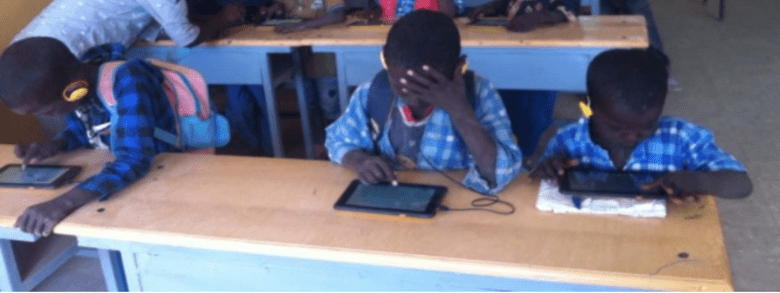
- VSO Ethiopia
In Dubti and Samara, two towns in the Afar-speaking region of Ethiopia, primary school children are taking their first steps to becoming numerate. Using onebillion maths apps, the children spend time learning maths concepts in their own language, with support from their teachers and teaching assistants.
Cambodia
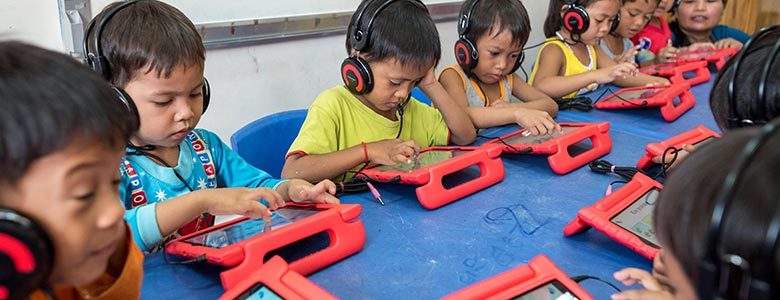
- Cambodian Children's Fund
Grades 2 and 3 children in Cambodia get a headstart to their learning experience in safe and engaging kindergarten centres, which are run by the Cambodian Children’s Fund. They have no previous experience using a digital device until they get their hands on the Khmer version of our Maths, age 3-5 app. The children are using the numeracy software for 20 minutes, three times per week.
Brazil
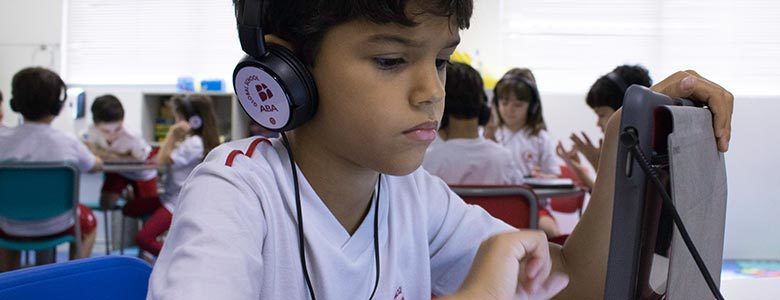
- University of Nottingham
Kindergarten children at a bilingual school in Recife, Brazil used Maths, age 3-5 and Maths, age 4-6 in both English and Brazilian Portuguese. During a 10-week research project monitored by the University of Nottingham, children were tested pre- and post-intervention to evaluate the impact of the software on children’s learning outcomes.
Malawi
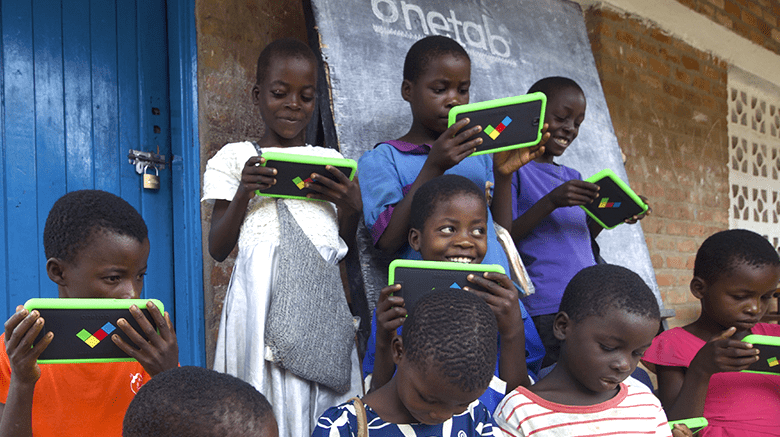
- The Tongole Foundation
Children in Standards 2 and 3 in a primary school in Nkhotakota are using onetabs to learn numeracy and literacy – all in their native language, Chichewa. The Tongole Foundation has installed 10 onetabs – charged by solar power – to supplement normal class teaching. Digital teacher Alefa takes learners through a personalised learning session, with the onecourse software adapting to each child’s needs in maths and reading. Teachers provide extra scaffolding and administer the onetabs each day.